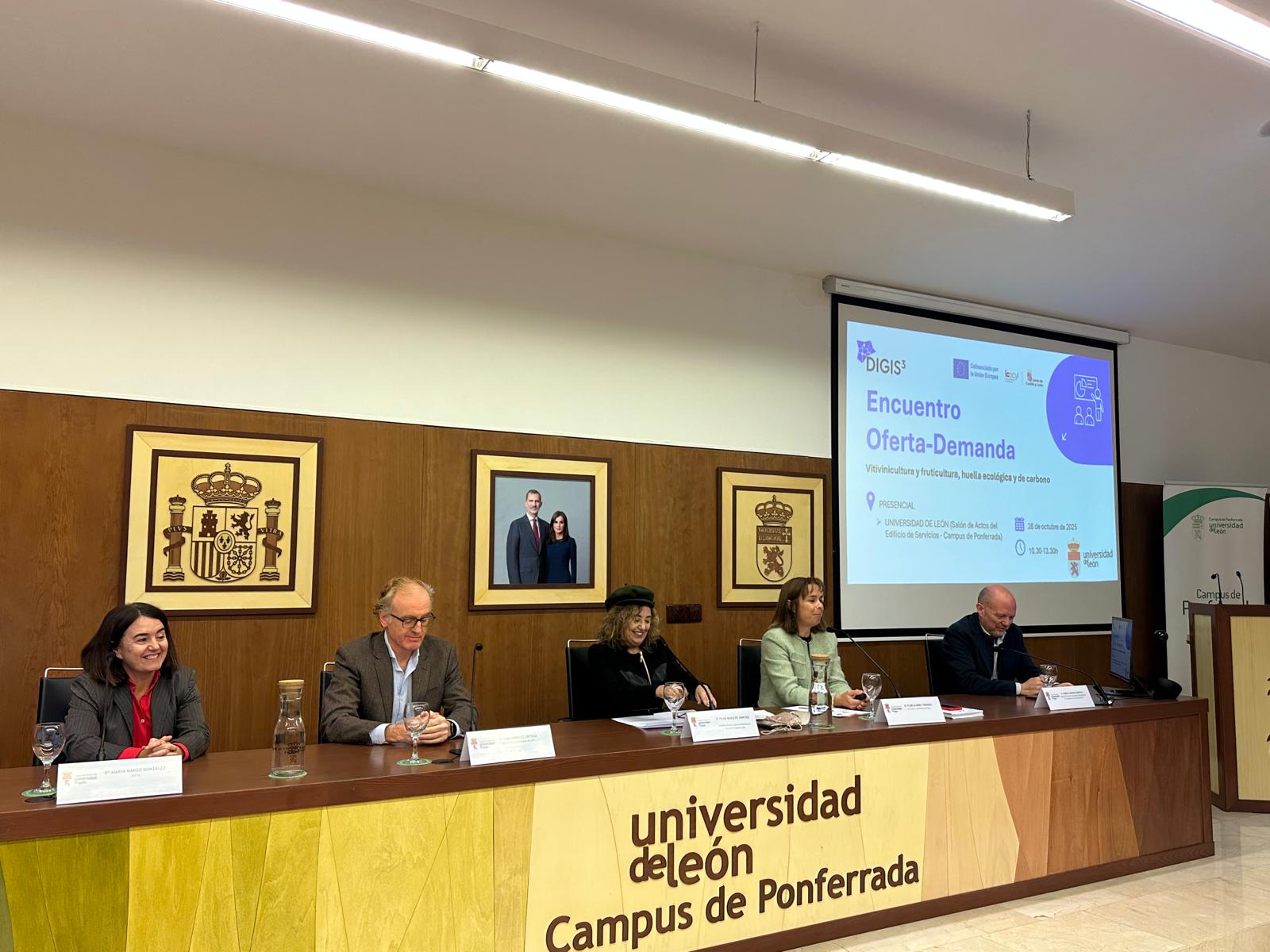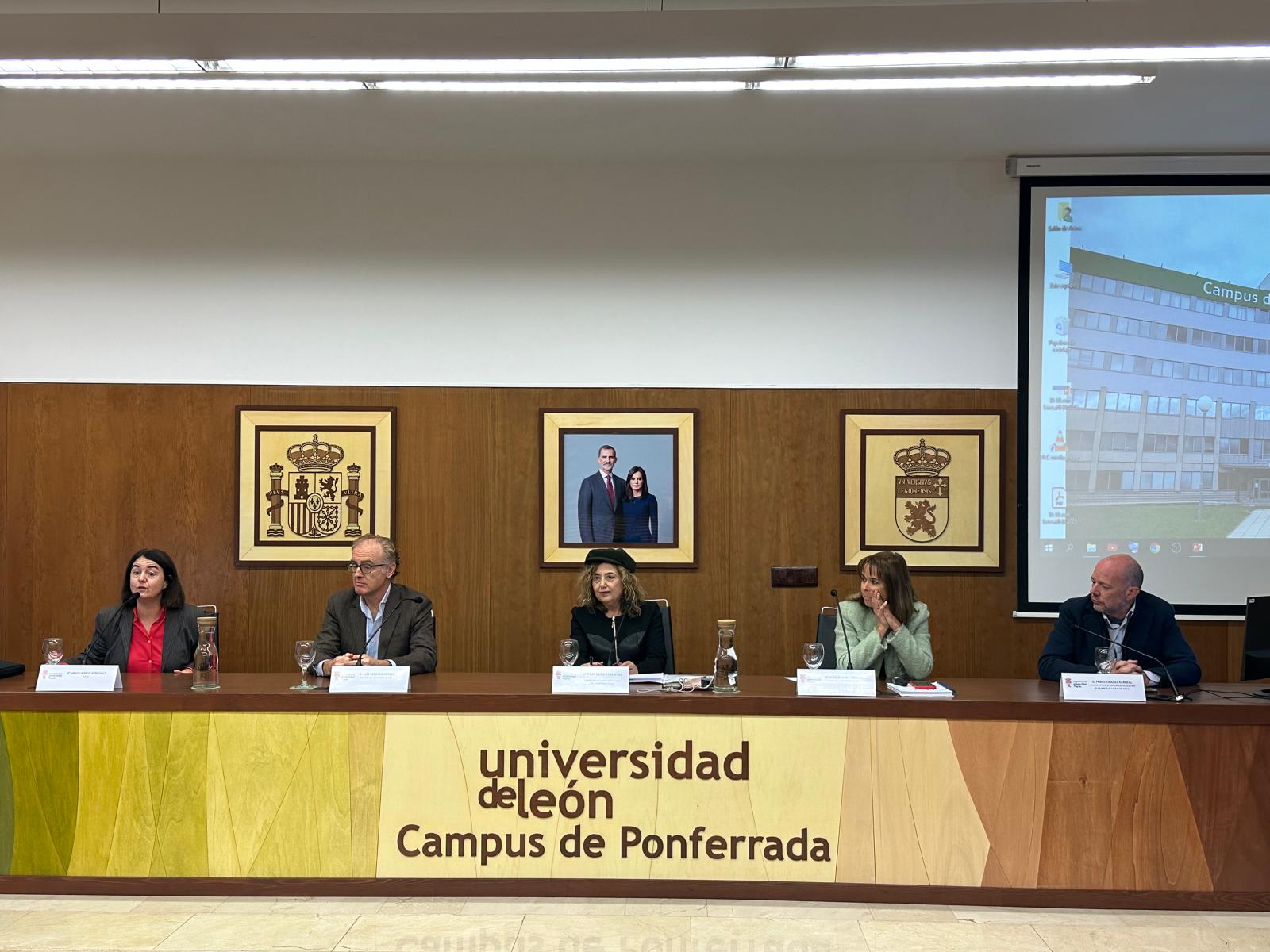The University of León, a member of the DIGIS3 project, hosted the DIGIS3 Supply–Demand Meeting this Tuesday at its Ponferrada Campus. The event, organised by the University of León and the Institute for Business Competitiveness of Castilla y León (ICECYL), brought together researchers, experts, companies, and public administrations to share knowledge and successful experiences aimed at boosting the digital transformation of the agricultural and forestry sectors.
As highlighted by the Vice-Chancellor of the Ponferrada Campus, Pilar Marqués, this initiative “demonstrates the role of the University as an institution that transfers knowledge and serves both society and the business community.”
Flor Álvarez Taboada, co-principal investigator of DIGIS3 (the only European Digital Innovation Hub in Castilla y León, made up of six partners – including the University of León – and thirteen associated entities), noted that since the project was launched two years ago, over 500 services have been delivered across the region. “Businesses are very receptive, and there’s a kind of ripple effect: once they find out that these services exist, they get in touch to learn more.”

Using drones to assess the condition of vineyards or crops and determine whether they need fertilisation or irrigation; employing a small ground-penetrating radar to detect knots within trees and their depth; or using scanners to calculate the volume of burnt wood still standing in an area—these are just some of the practical applications of the digitalisation services being offered.
“These technologies are current and already being tested. In fact, some companies are keen to acquire these tools and are hiring graduates from the Master’s in Computer Science at the Ponferrada Campus, who specialise in their use,” Taboada explained.
Tuesday’s meeting also featured the participation of Luis Herráez, Director of the School of Agricultural and Forestry Engineering at the University of León; Amaya Manso González, DIGIS3 technician at ICECYL; Pablo Linares, Technical Director of the Regulatory Councils of the Bierzo quality brands; and Adelino Pérez, President of the Regulatory Council of the Bierzo Designation of Origin. The event served as a forum to showcase these digital tools and connect companies already offering such services with those that may benefit from them.

The agricultural and winegrowing sector in Bierzo
Pablo Linares, Technical Director of the Regulatory Councils of the Bierzo quality brands, sought to challenge the perception of agriculture as a conservative sector: “That’s simply not true—technology is fundamental, and our farmers are increasingly well trained and make greater use of it every day.”
Adelino Pérez, President of the Bierzo DO Regulatory Council, echoed this sentiment, noting that digitalisation is already widespread in the wine sector, particularly among large companies from outside the region. Taboada added that in the fruit-growing and forestry fields, “we are still taking the first steps, as is the case across Castilla y León, but even these early steps are having a huge impact.”
Programme of the meeting
The event included presentations of technological solutions by companies and organisations already applying innovation in the field. The ULE research group GEOINCA, specialised in geomatics for natural resource management, showcased a successful case study developed in collaboration with the Bodega Descendientes de J. Palacios. Other participants included Invicsa Airtech, specialising in aerial monitoring with drones for precision agriculture; Isagri, developers of agricultural and livestock management software; Servima, focused on energy efficiency and sustainability; VITICAMPO, dedicated to automating winegrowing and horticultural services; and María Sevilla Asesoría Enológica, which presented the use of sensors for process and quality control.